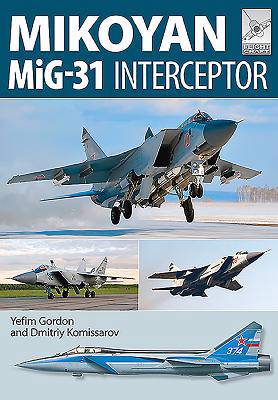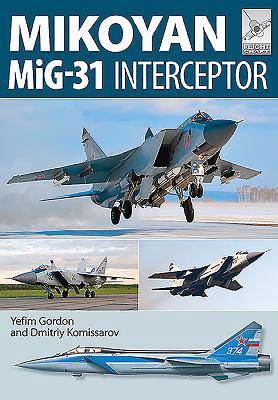
- Retrait gratuit dans votre magasin Club
- 7.000.000 titres dans notre catalogue
- Payer en toute sécurité
- Toujours un magasin près de chez vous
- Retrait gratuit dans votre magasin Club
- 7.000.0000 titres dans notre catalogue
- Payer en toute sécurité
- Toujours un magasin près de chez vous
23,95 €
+ 47 points
Description
The MiG-31 started life as an advanced derivative of the famous MiG-25P interceptor, becoming the first Soviet fourth-generation combat aircraft. First flown in 1975, it differed from its progenitor primarily in having a crew of two (pilot and weapons systems operator), a highly capable passive phased-array radar - a world first - and new R-33 long-range missiles as its primary armament. The maximum speed was an impressive Mach 2.82, the cruising speed being Mach 2.35. The type entered service in 1981; more than 500 copies were built between 1981 and 1994. The powerful radar and other avionics allowed the MiG-31 to operate as a 'mini-AWACS' scanning the airspace and guiding other interceptors to their targets; a flight of three such aircraft in line abreast formation could cover a strip 800 km (500 miles) wide. To this day the MiG-31 remains one of the key air defense assets of the Russian Air Force. The book describes the MiG-31's developmental history, including upgrade programs, and features a full and comprehensive survey of the various MiG-31 model-making kits currently available on the market.
Spécifications
Parties prenantes
- Auteur(s) :
- Editeur:
Contenu
- Nombre de pages :
- 96
- Langue:
- Anglais
- Collection :
- Tome:
- n° 8
Caractéristiques
- EAN:
- 9781473823921
- Date de parution :
- 19-10-15
- Format:
- Livre broché
- Format numérique:
- Trade paperback (VS)
- Dimensions :
- 206 mm x 297 mm
- Poids :
- 453 g

Les avis
Nous publions uniquement les avis qui respectent les conditions requises. Consultez nos conditions pour les avis.






